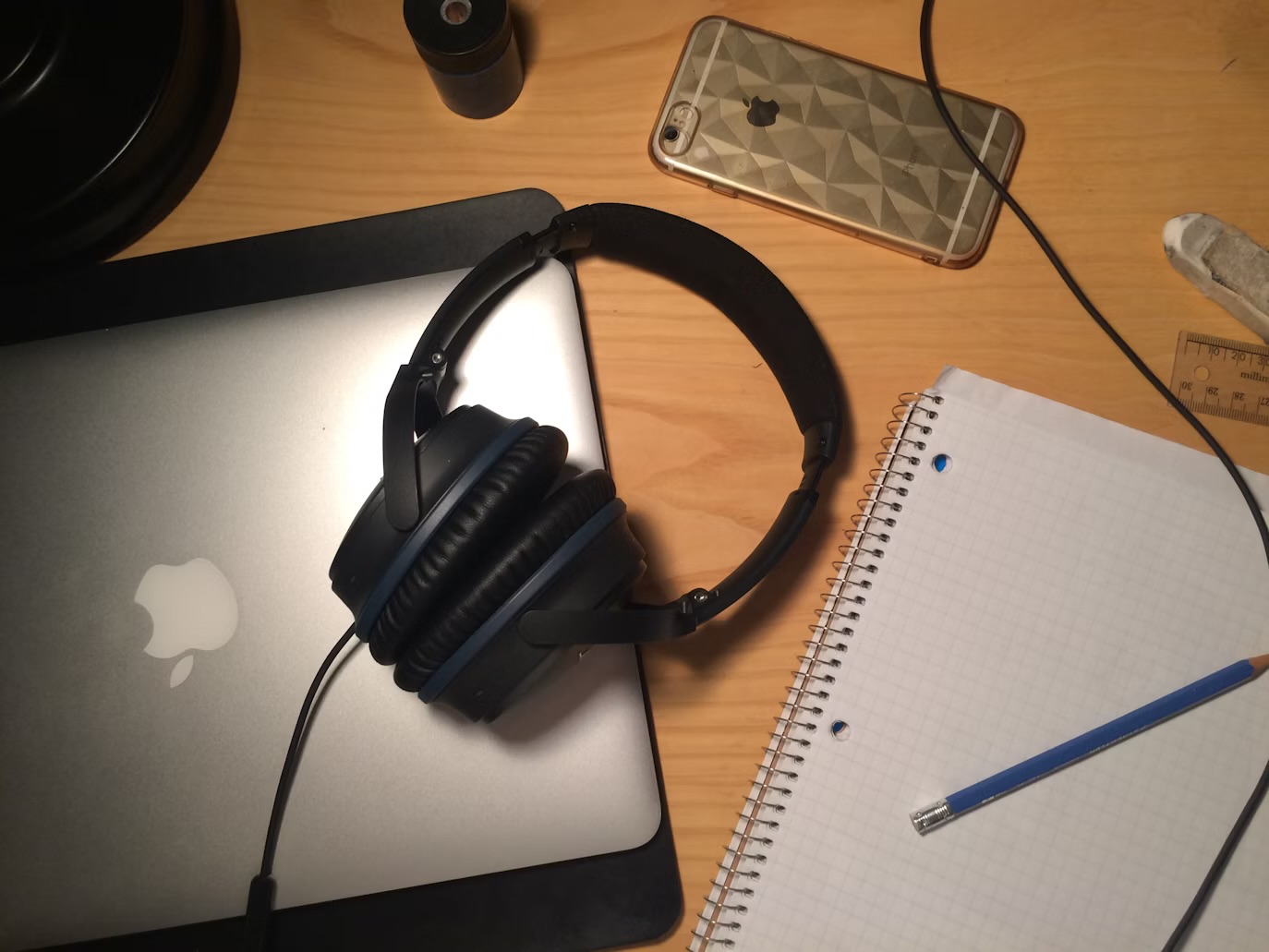Should you be studying with music? Many people–especially adolescents–regularly listen to music while they’re studying, or even consider themselves more prone to productivity when working with earbuds in. And while there are pros to this–for example, music can ameliorate your mood and motivation, block out background noise, and promote focus, for some people–it also has its cons. Namely, it can bring a risk of lowering your attention span.

Image Credit: Ivana Cagina from Unsplash
Let us slide into your dms 🥰
Get notified of top trending articles like this one every week! (we won't spam you)The Effects of Different Genres on Your Attention Span
I have heard often from the adults in my life whenever they catch me with my earbuds in at my desk many variations of–music is going to ruin your attention span, it’s going to make you lose focus, don’t listen to music with lyrics at the very least. But truthfully I don’t think I’ll be able to completely stop listening to music while studying now that I’ve started: oftentimes it’s what keeps me going when the hours get long, or I need some means to make the experience of solving calculus problems more "fun."
Turning on my favorite playlist is what keeps me burning the midnight oil, keeps me solving and understanding, because it gives me something to look forward to every minute with a favorite song or a particularly catchy tune in the queue. However, over the years I’ve come to recognize that though listening to music while studying can act as fun and engaging for certain forms of studying–specifically practice questions–sometimes, for certain forms of learning, it can act as a distraction.
And along the same lines there is a case to be made that certain types of music are more apt and effective for learning than others.
Classical music is often viewed as ideal for focus as it promotes calm and attention, especially Baroque–e.g. Bach, Handel, Vivaldi, etc. This could be because classical music contains no lyrics and thus invites less distraction–most of it is instrumental, meaning it doesn’t need to compete with your brain’s language-processing centers, managing to do exactly what listening to music while studying hopes to achieve–stimulating the brain without overloading it. Lo-fi and chillop are two other popular genres viewed as good for focus and mood–the reasons why are similar to classical music: they are often instrumental and low-distraction.
Pop, rock with lyrics, and as a whole fast-paced or emotional, lyrical music is when distraction becomes a considerable issue as lyrics compete with verbal processing or even start to affect you emotionally–making it hard to focus on your work.

Image Credit: Francis Bouffard from Unsplash

Take the Quiz: Which college major suits you?
Find out which college major aligns perfectly with your passions, strengths, and future dreams!
Effective Ways to Study With Music Playing
Taking into account all these different genres, their varying effects on studying, and the reasons why, there’s one factor that structures every argument–'distraction,' or the degree of it. At its core, studying requires sustained attention–your brain needs to hold information, process it, and essentially integrate it into your memory.
However, listening to music introduces a second stream of input that makes it difficult for your brain to focus on processing the information it needs to get from watching that video about derivatives, taking notes on chemistry, or whatever it is. Even if you think you’re not consciously paying attention to the music, your mind is still subconsciously reacting to it, creating cognitive discordance.
This effect is amplified when doing complex tasks such as reading dense material, writing essays, solving foreign problems, or memorizing detailed concepts—and that’s where I have decided to draw a line when it comes to studying and listening to music.
When trying to retain new information, I either turn off my playlists or turn to classical or other non lyrical types of music. Of course this is only what has worked best for me personally, but it is a strategy that has been supported scientifically by multiple attributable sources.
The National Institute of Health did a study on background music and working memory capacity and found that learners may be able to juggle both the learning task and background music–with lyrics or not–if the task is not overly complicated, but their learning may be hurt if they are trying to process a heavy amount of new information and simultaneously listening to background music.
Additionally, research by the University of Wollongong stated that while music can put us into a better mood when studying it can also hinder our attention span when trying to learn. However, something to be noted is that various studies–including one by Texas A&M university–points out that everybody is different and what works for one individual may not necessarily work for another.
My End Thoughts

Image Credit: Imtiaz Ahmed Dipto from Unsplash
So ultimately, listening to music while studying isn’t inherently negative for everyone. Whether music helps or hurts your studying will come down to your personal preferences, how well you balance the kinds of music you’re listening to and during what activities you’re listening to it.
There’s no clear-cut yes or no to the question “should you be listening to music while you’re studying” but research does suggest that music with lyrics can hinder performance on tasks involving verbal memory, visual memory, and reading comprehension. While there may be some individual differences in how music affects people, for most, it’s likely best to listen to classical music, Lo-fi / softpop, jazz, or some other low-tempo, non-lyrical genre when studying new material with low working memory capacity.












